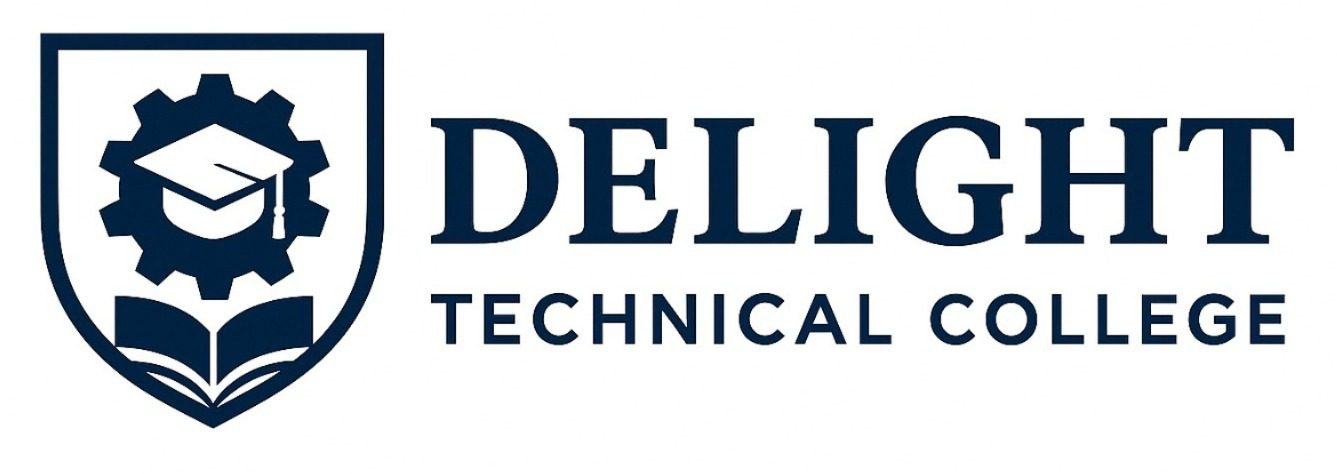
Empowering Uganda: How Delight Technical College Builds Regional Skills for East Africa
Delight Technical College plays a pivotal role in building regional skills that benefit not only Kenya but also neighboring countries like Uganda. As the East African Community (EAC) continues to integrate, the need for skilled professionals across the region has become more pronounced. Delight Technical College, with its focus on technical and vocational education and training (TVET), provides Ugandan students with the tools, knowledge, and networks they need to excel in various industries, contributing to the overall development of Uganda and the wider East African region.
Here’s how Delight Technical College contributes to building regional skills with a special focus on Uganda:
- Offering High-Quality, Industry-Relevant Training
Delight provides cutting-edge training in fields that are critical to the development of Uganda and East Africa, such as:
- Information Technology (IT) and Computer Science: As Uganda’s tech industry continues to grow, Delight’s IT courses prepare Ugandan students with modern skills in coding, web development, cybersecurity, and networking, making them competitive in both local and regional job markets.
- Engineering (Mechanical, Electrical, Civil): Uganda’s infrastructure projects, including roads, energy production, and construction, require skilled engineers. Delight’s hands-on training in engineering gives Ugandan students the knowledge to contribute to national and regional infrastructure development.
- Business and Entrepreneurship: Entrepreneurship is key to Uganda’s economy, and Delight’s business management courses provide Ugandan students with the tools to create and manage successful businesses that can thrive in a competitive market.
- Hospitality and Tourism Management: With Uganda’s growing tourism sector, Delight’s hospitality training provides Ugandan students with practical skills in hotel management, event planning, and customer service, enabling them to work in Uganda’s tourism industry or across East Africa.
- Fashion and Design: The fashion and design industry is booming across East Africa, including Uganda. Delight’s practical training in garment construction, textile design, and fashion marketing enables Ugandan students to launch their own brands or work with established designers and fashion houses.
- Promoting Regional Integration and Cross-Border Collaboration
One of Delight’s key strengths is its commitment to regional integration. By attracting students from across the East African Community, including Uganda, Delight fosters a diverse learning environment where students from different countries can collaborate, share ideas, and build cross-border networks.
- Collaborative Projects and Internships: Delight’s partnerships with regional companies and institutions provide Ugandan students with opportunities to engage in internships, exchange programs, and project collaborations that extend beyond Kenya into other East African countries, including Uganda.
- Cross-Border Networking: Through events, workshops, and seminars, Delight facilitates networking opportunities that bring together students from Kenya, Uganda, and other East African countries, promoting regional dialogue and collaboration.
- Job Mobility: With the East African Community’s free movement of labor, Ugandan graduates from Delight have the opportunity to work in any of the partner countries, including Kenya, which can provide them with wider career prospects within the region.
- Supporting Entrepreneurship and Innovation
Delight’s focus on entrepreneurship training helps Ugandan students to develop the skills and mindset necessary to launch and run successful businesses. This contributes to the development of Uganda’s private sector and the wider East African economy.
- Access to Funding and Resources: Through its collaboration with various stakeholders, Delight connects students with entrepreneurial funding, incubators, and accelerators that support the growth of new businesses. Ugandan students with business ideas gain exposure to investment opportunities and the tools needed to turn their ideas into viable businesses.
- Innovation for Local Solutions: Many Ugandan students at Delight are inspired to develop innovative solutions to local challenges in areas like agriculture, healthcare, and education. By training in an environment that values practical, hands-on learning, students gain the experience they need to create solutions that are relevant to Uganda and the wider region.
- Bridging the Skills Gap in Uganda
In Uganda, there is often a mismatch between the skills acquired through formal education and those required by the job market. Delight helps bridge this gap by offering skills-based training in practical areas that are in high demand across East Africa.
- Practical Skill Development: Delight’s TVET programs are designed to provide students with practical skills that they can immediately apply in the workplace, whether in the tech, construction, hospitality, or fashion industries. This approach ensures that graduates are ready to meet the challenges of the regional job market.
- Flexible Learning Options: Delight offers flexible learning pathways, including online and blended learning, which are especially beneficial for students from Uganda who may need to balance work, studies, and family commitments.
- Hands-On Experience: Through internships and practical projects, Delight students, including those from Uganda, are exposed to real-world challenges and solutions that they can take back home and apply in Uganda’s dynamic job market.
- Promoting Social and Economic Empowerment
Delight’s emphasis on vocational education provides Ugandan students with the skills they need to improve their personal lives and contribute to the economic development of their communities.
- Job Creation and Employment: Many graduates from Delight go on to create jobs within Uganda by launching small businesses or offering specialized services. This contributes to the local economy and helps to reduce unemployment in Uganda.
- Gender Empowerment: Delight’s inclusive training programs encourage both young men and women to pursue careers in traditionally male-dominated industries such as engineering and IT, promoting gender equality and empowering women across East Africa.
- Community Impact: As Ugandan students return to their communities with new skills, they become role models and mentors to others, spreading knowledge and encouraging others to pursue vocational training as a means of improving their lives.
- Preparing Students for the East African Job Market
Delight works closely with regional industries to ensure that its curriculum aligns with the current and future demands of the job market in East Africa. This gives Ugandan students a competitive edge as they enter the workforce.
- Industry Partnerships: Through partnerships with regional businesses, Delight students gain exposure to real-world work environments. Ugandan students are not only taught the theory but also given the opportunity to work on real projects that enhance their employability across East Africa.
- Skills Alignment with Regional Trends: Delight regularly updates its course offerings to align with regional job trends such as digital transformation, sustainability, and green technologies. This ensures that Ugandan students are well-prepared for the evolving East African job market.
Conclusion
Delight Technical College plays a crucial role in building regional skills by offering industry-relevant courses and providing Ugandan students with practical training that prepares them for successful careers in East Africa. By focusing on entrepreneurship, cross-border collaboration, and hands-on skills development, Delight contributes to the growth of Uganda’s workforce, helping students bridge the gap between education and employment while also promoting regional integration and economic empowerment across the East African Community.



